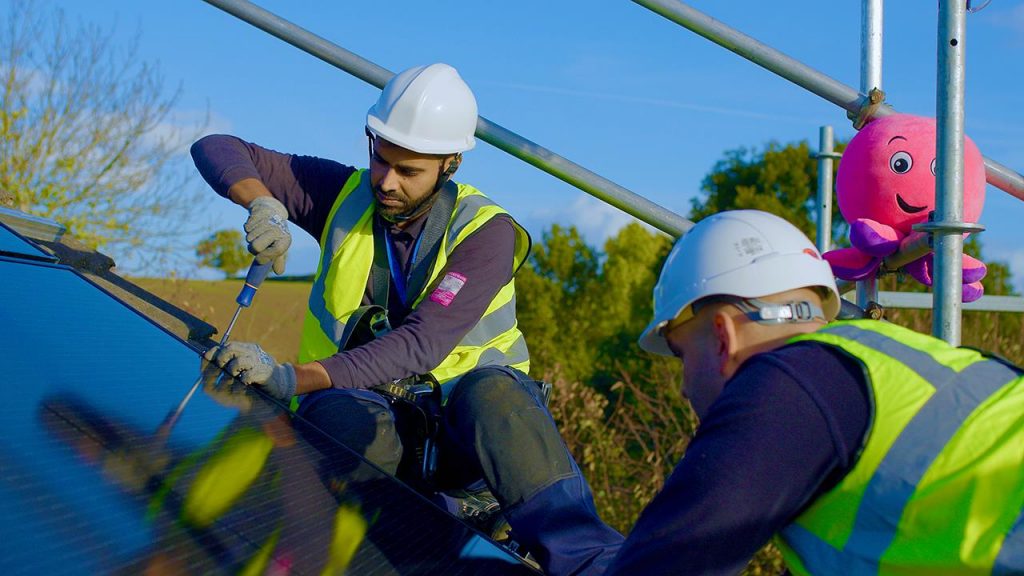“If you can offer zero bills and save the planet as well, then you’re on the right track” [Octopus Energy]
The UK’s housing stock is among the oldest and least well-insulated in Europe. [FT]
.
The idea of building housing with ‘zero energy bills’ has been around for some time now – with the innovative Zed Factory coming up with a prototype in 2016, as featured on the Future Forum pages at the time.
Last year, Octopus Energy worked with a developer to build “the first UK homes with zero energy bills for its residents launched as part of a renewable housing trial” in Essex.
This week, Octopus has announced that it has joined forces with “multi award-winning sustainable housebuilder Verto to launch the UK’s first fully ‘Zero Bills’ developments.”
Together, the companies will deliver a total of 70 homes across two sites in Cornwall and Exeter. These will include multiple open market and affordable homes and the first ‘Zero Bills’ retrofit properties – proving that both new and existing properties can be outfitted to exist without energy bills.
Builder Vetro give more details about the development in Exeter:
In the middle of a cost-of-living crisis, Zero Bills can make a huge difference to people’s lives and their home’s impact on the planet. Octopus has set itself a mission to deliver 10,000 Zero Bills homes by 2025 and, together, we’re doing everything we can to make this goal a reality. Our new development at Nexa Fields in Pinhoe, Exeter is the world’s first community built from the ground up to meet Zero Bills standards.
There’s certainly a lot of interest from the renewable energy industry, as well as the home heating sector.
The FT looked at the pilot scheme last year – and how well it is likely to work:

The UK’s housing stock is among the oldest and least well-insulated in Europe.
The government has made clear that decarbonising homes will be essential if the country is to hit its legally binding net zero target by 2050, but withdrew a flagship grant scheme to help homeowners make their properties more efficient last year.
According to Carter, promising zero bills at a time when families are facing soaring power costs is a more effective way to get consumers on board with the clean energy transition. “The most powerful word in marketing is free. How do we create a carbon transition? We create a proposition that consumers can engage with. If you can offer zero bills and save the planet as well, then you’re on the right track,” he said.